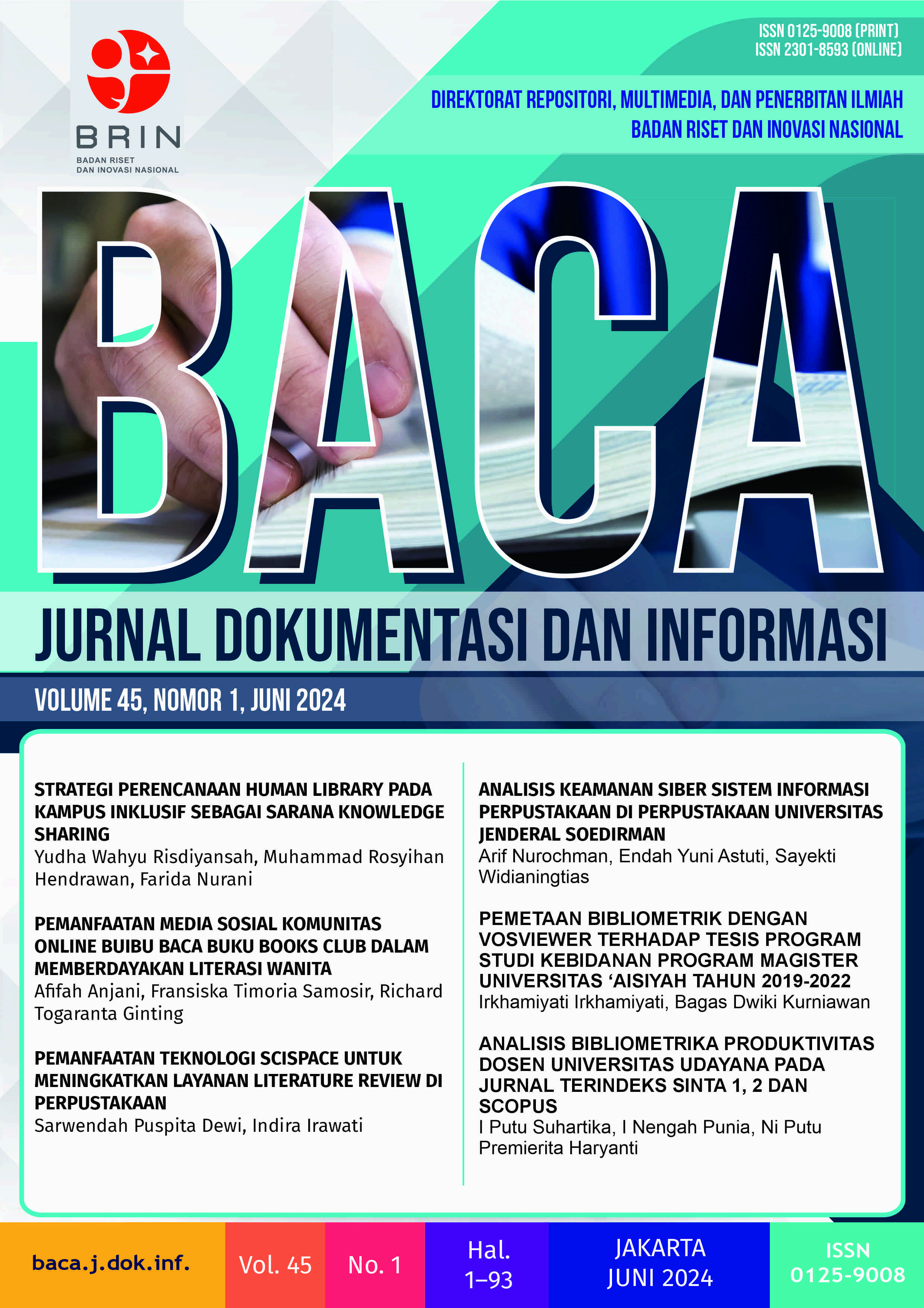Strategi Perencanaan Human Library pada Kampus Inklusif sebagai Sarana Knowledge Sharing
Main Article Content
Abstract
Universities have multicultural conditions that provide opportunities for people to pursue advanced education, including people with disabilities. Conditions in Indonesia also show a negative stigma for people with disabilities in the academic environment. Several efforts have been made by universities such as Brawijaya University (UB) to reduce this negative stigma through inclusive education. Previous research mentioned efforts to minimize negative stigma through the Human Library (HL) program, but this program has yet to be widely implemented in universities in Indonesia. This research used a sequential exploratory mixed method that determined library staff, administrators of the UB Disability Service Center (PLD), students with disabilities, volunteers, and the rectorate as research subjects. Data were collected through interviews, questionnaires, observations, FGDs, and literature studies, which were processed through grouping interview themes and descriptive statistics. Based on the results, the implementation of HL has the potential to be carried out routinely at UB by using a backward integration strategy. The strategy was carried out through collaboration between UB Library as a knowledge manager and PLD UB as a protector of students with disabilities in organizing HL. The supporting aspects were seen through the ability of library staff with an inclusive nature, a good understanding (x̄=3.72) of the concept of social inclusion, and good knowledge-sharing abilities (x̄=3.78). It can be concluded that the implementation of HL at UB has the potential to be carried out routinely because it has an appropriate supporting institution and does not conflict with the law, society, and culture.
Downloads
Article Details

This work is licensed under a Creative Commons Attribution-ShareAlike 4.0 International License.


